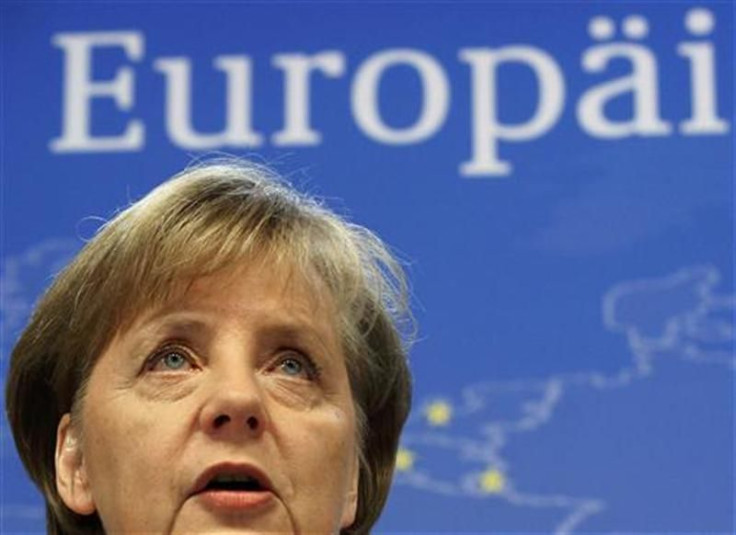Merkel Resists Push to Enlarge Euro Zone 'Firewall'

Chancellor Angela Merkel told the Bundestag, the lower house of Germany's parliament, that her country will agree to increase the euro zone's “firewall” – a protection against financial contagion – only if other currency bloc members do likewise.
Despite pressure from international entities that Germany accelerate payments into the proposed European Stability Mechanism, or ESM, Merkel reiterated that the country shouldn't have to provide such funding right away on its own.
She also said participation of the International Monetary Fund is crucial to the future success of such a bailout bank.
The euro zone’s existing -- but temporary -- rescue fund, the European Financial Stability Facility, or EFSF, has about €250 billion ($335 billion) remaining, while the ESM is envisioned to hold twice that amount. The two funds’ combined financial clout (€750 billion) would serve as a formidable firewall against future financial crises on the continent.
The German government is prepared to provide Germany's share of capital for the ESM sooner than planned, Merkel said. But the German government does not see any need at this time to for a debate over increasing the capacity of the ESM and EFSF.
The IMF and other institutions have said the two should be merged in order to protect Europe from financial contagion. Even Germany's finance minister, Wolfgang Schäuble, suggested this would be possible.
Dow Jones Newswires reported that Merkel is willing to put €11 billion ($14.7 billion) into the ESM this year and next, contingent on other euro nations' doing the same.
Also Monday, the Bundestag is to vote on a second bailout proposal for Greece, amid loud objections from prominent German politicians including Interior Minister Hans-Peter Friedrich.
Merkel herself, who touts the need to keep Greece stabilized, has admitted that the rescue loan might not save that country from bankruptcy. Still, she insisted it was important to save Greece now, fearing the alternative if the loan is denied.
We have to create a political [and monetary] union step by step, the chancellor told lawmakers. “I think those risks are incalculable, and therefore indefensible. I should and have to take risks, but I cannot embark on adventures. My oath forbids that.”
© Copyright IBTimes 2024. All rights reserved.











